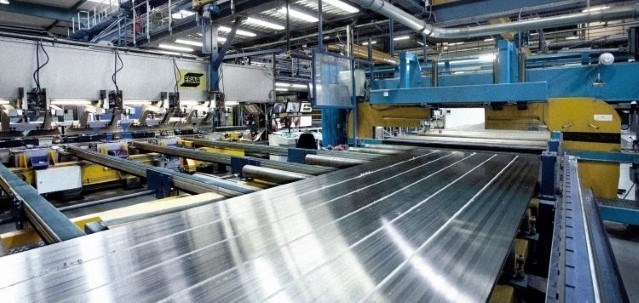Hydro underlines benefits of using aluminium extrusion in offshore vessels
Aluminium extrusion specialist Hydro is of the view that the use of extruded aluminium has a lot to offer in the making of conventional offshore vessels. Though the demand for offshore vessels is low currently, use of aluminium could have a number of advantages in the newly designed vessels.

Hydro did a number of technical and cost studies with leading offshore support vessel builders that suggested that aluminium could not only reduce weight but also can be cost-competitive with steel.
Hydro’s marine and offshore market manager Chris Moyle explained that aluminium can be a fitting material for the offshore environment with one-third of the weight of steel, lower maintenance cost; durability, strength and corrosion resistance.
“By reducing weight, aluminium reduces costs,” said Mr Moyle. “It also saves time and cost in installation. Further savings come because of the metal’s low maintenance qualities and its resistance to corrosion and because it has a considerably longer lifetime than steel applications. Extremely versatile, aluminium adapts easily into any design and offers a smooth surface finish.”
According to Mr Moyle, Hydro’s extruded aluminium is best known in the offshore vessel industry from helicopter decks. It also supplied extruded panels for yards that specialise in building fast craft for the offshore wind industry.
The collaborative study with a leading Norwegian shipyard showed that use of aluminium in a vessel can achieve weight reduction of 40–50% compared with steel when used in areas like accommodation blocks.
“Our study showed that, for the AHTS design in question, a weight saving of 140 tonnes was possible. A follow-up study of the economics of using aluminium showed that using friction stir welded extruded panels was also cost-competitive,” he said.
He also adds that aluminium also meets all of the fire protection requirements for a vessel. Hydro applies protective materials including mineral wool or ceramic fibres in areas that needs extra fire protection. Even after the addition of extra fire protective material the aluminium structure turns out to be lighter than steel.
Hydro has developed new alloys like the latest 5083 series to meet the demand of aluminium in the marine environment, which is highly resistant to corrosion in salt water. It also offers higher weldability and predictable post-weld strength and meets the stringent technical requirements for hull structure applications. Hydro can produce large extrusion profiles suitable for the hulls.
This news is also available on our App 'AlCircle News' Android | iOS















.png/0/0)







